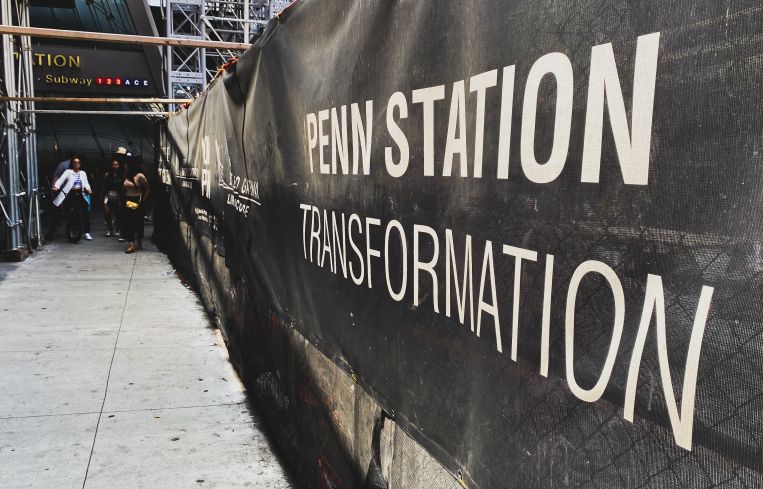Vornado Puts Penn Station Area Redevelopment Plans on Hold for 2023
Fearing a hard year, Vornado has shelved all development plans for the duration of 2023.
By Mark Hallum November 1, 2022 5:18 pm
reprints
Vornado Realty Trust’s plans for the Penn District are not clear for takeoff, with CEO Steven Roth blaming hesitancy to start new developments around Pennsylvania Station on a change in “headwinds.”
During a Tuesday conference call, Roth simply stated Vornado was cautious about construction going into 2023 but would not get into the deails of whether it would alter the plans for the Penn District, Crain’s New York Business first reported.
“Hotel Penn is coming down with demolition scheduled to be completed in the fourth quarter of 2023. I must say that the headwinds in the current environment are not at all conducive to ground-up development,” Roth said.
The potential delay could have implications for Gov. Kathy Hochul’s redevelopment of Penn Station, the funding framework for which has hinged on payments in lieu of taxes (PILOTs) from Vornado for its planned 18.3 million square feet of office space and 1,256 apartments. Vornado has not set a firm timeline for the Penn Plaza developments before.
“Quarterly conditions may fluctuate, but Governor Hochul’s commitment to revitalizing Penn Station and the area surrounding it will not,” Matthew Gorton, a spokesperson for Empire State Development, said in a statement. “We have always said that this was a long-term project — to be built out over more than a decade — designed to withstand temporary market adjustments and that the revenues generated through redevelopment were just one of several funding sources to support the reconstruction of Penn.”
Without those payments, the state will need to look elsewhere for the $4.1 billion expected from Vornado in exchange for development rights to fund New York’s share of Penn Station renovation. The total cost of the Penn Station redevelopment project for the transit amenities alone is estimated in excess of $7.5 billion under the general project plan.
When asked if there might be any changes to the plan, Roth said, “That’s not something we’re going to get into now.”
Despite the state’s confidence in the funding agreement for the renovations, several groups have called that idea into question. The city’s Independent Budget Office questioned if the PILOTs would provide as much money as the state hopes, given the pandemic’s impact on office property values in the city, while advocacy group Reinvent Albany estimated the state would be short about $3 billion. Just days after Reinvent Albany’s report, the city and state reached a broad funding deal, which won approval from the Public Authorities Control Board later in July.
Vornado’s opaque remarks on the Penn District’s future came less than a week after a lawsuit filed by community groups and tenants of a building that would be demolished under the project against the ESD claimed Vornado had too much influence in the renovation and funding scheme for the new Penn Station.
The overall message of Vornado’s call, however, centered around a shifting leasing market with tenants taking less office space, regardless of demand in Class A developments near transit infrastructure. Vornado leased 229,000 square feet in New York City alone in the third quarter, below previous trends, Roth said during the call.
Interest rates and volatile capital markets were a concern voiced by Roth. Overall income throughout 2023 will be lower as Vornado is not expected to reap any profits from 220 Central Park South and there will not be any asset sales.
At the end of the third quarter, Vornado had $3.3 billion in liquidity, according to CFO Michael Franco.
Mark Hallum can be reached at mhallum@commercialobserver.com.



